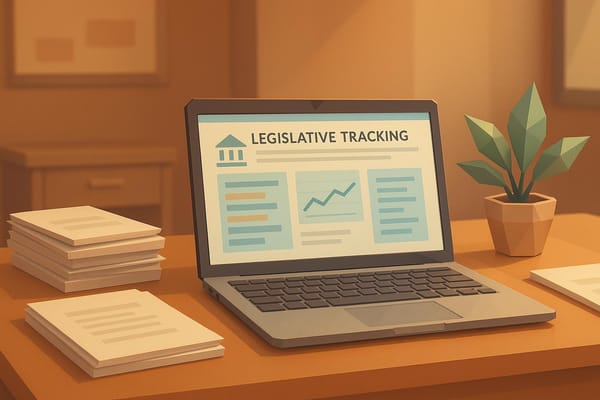Alabama Bill: Licensing Esthetician Makeup Artists
The beauty and cosmetology industry in Alabama is on the cusp of significant change with the introduction of House Bill 70. This new legislation aims to formally recognize and regulate esthetician/makeup artists. Currently, the Alabama Board of Cosmetology and Barbering oversees various beauty practices, but this bill specifically carves out a defined path for makeup artists, establishing licensing requirements and ensuring professional standards. This legislative step is crucial for both public safety and the continued growth of the beauty industry in the state. It addresses the need for regulated practices in makeup application, which is increasingly becoming specialized. This post will explore the key aspects of HB70, providing clarity on its implications and the changes it will introduce to the existing regulatory framework.
Defining Esthetician/Makeup Artists and Their Scope
HB70 is the formal definition of "esthetician/makeup artist." The bill clarifies this role as someone who performs a combination of esthetic practices and makeup application for compensation, distinguishing them from general estheticians or cosmetologists. This distinction is critical because it recognizes makeup application as a specific skill set within the broader field of esthetics. According to the bill, “Esthetician/Makeup Artist: Any person, other than a student or apprentice, who performs a combination of the practices of esthetics and makeup application on the general public for compensation, and who shall satisfy the qualifications and licensure requirements provided in this article for an esthetician/makeup artist.” The implications of this definition are far-reaching as it affects who can legally perform makeup services for payment, specifying that they must meet the new requirements set forth by the state.
The bill further defines “makeup application” to include applying cosmetic preparations to the skin, eyebrows, and lashes of the face and neck. For instance, cosmetic skin treatments such as facials or peels are distinct from makeup application, so the definition makes it clear what is included and what is not, minimizing any ambiguity on practices within the new parameters.
Licensing Requirements and Qualifications
HB70 doesn't just define the profession, it also establishes the standards for obtaining an esthetician/makeup artist license. Individuals seeking this license must first hold a valid esthetician license, meaning they must have passed their esthetics license requirements and mandates the completion of at least 500 clock hours of skin care fundamentals instruction in a licensed cosmetology or esthetics school. The bill stipulates: “No person may be admitted to an examination or licensed as an esthetician/makeup artist unless he or she holds a license as an esthetician and has successfully completed at least 500 clock hours of skin care fundamentals instruction in a licensed or registered school of cosmetology or 500 clock hours of skin care fundamentals instruction in a licensed or registered school of esthetics under this chapter.” This quotation provides clear instructions as to the minimum qualifications for this new class of license.
The bill also requires that applicants take and pass an examination and pay the required license fee. Only after all these steps are completed will an individual receive an esthetician/makeup artist license. This process parallels existing licensing procedures within the Cosmetology and Barbering Board, reinforcing the necessity for both practical skills and understanding of health and safety regulations. This licensing pathway ensures that all makeup artists operating in Alabama have met a standardized, rigorous set of requirements that are equal across the state, providing for more consistent and fair business practices.
Registration Deadlines and Implementation
HB70 bill states that individuals practicing in this capacity must register with the board and pay an original license fee commencing on October 1, 2025. This deadline is crucial for existing professionals who need time to comply with the new regulations. Failing to meet this registration deadline could have significant consequences for professionals, including inability to practice, fines, or other regulatory penalties. “Any person licensed pursuant to this subsection shall be subject to this chapter and rules adopted by the board including, but not limited to, shop requirements, sanitation procedures, and license renewal.” This means that all esthetician/makeup artist licenses must be kept current and in good standing, reinforcing the need for regular renewal.
The bill is slated to go into effect on June 1, 2025, which indicates that the Alabama Board of Cosmetology and Barbering will be actively implementing the new regulations from this point onward. This provides time for the board to create the rules and regulations as well as testing, in order to process licenses for the October 1, 2025 deadline. The effective date provides a starting point for those in the industry to prepare for these changes, allowing time for esthetics and cosmetology schools to incorporate the 500-hour makeup-specific training programs, so all aspiring esthetician/makeup artists can fulfill the requirements for their licenses.
Exemptions and Exceptions
While HB70 establishes new regulations, it also recognizes certain exemptions. The bill lists persons or situations to which the licensing requirements do not apply. Exemptions include situations like emergencies, services by licensed medical professionals within their practice scope, US military personnel performing their duties, public trade schools, or individuals who occasionally dress hair for no compensation. The bill states, “This chapter does not apply to any of the following persons, activities, or services: Service in the case of emergency or domestic upheaval, without compensation, Licensed medical professionals operating within the scope of their normal practice, and Personnel of the United States armed services performing their ordinary duties.” This highlights that the regulation is designed for individuals who professionally conduct esthetic and makeup services as a career, rather than casual or emergency situations. These exemptions provide clarity on the bill's limitations and prevent overreach into unrelated activities.
The bill further exempts “departments in retail establishments where cosmetics are demonstrated and offered for sale but where no other acts of cosmetology or barbering are performed.” This exemption clarifies that retail workers who are only providing demonstrations, and not performing services, are not subject to these licensure requirements. Additionally, any person working “under contract with the International Alliance of Theatrical Stage Employees (IATSE), or its successor organization” is also exempt. These exemptions showcase that the regulations are geared towards professionals who specifically provide these esthetic/makeup services to the general public, while also acknowledging unique circumstances within the profession. These clauses prevent unintended impact on business and industry professionals that may only occasionally perform such services.
Amendments to Existing Code
HB70 does not operate in a vacuum; it introduces key amendments to existing sections of the Code of Alabama 1975. Specifically, the bill modifies Sections 34-7B-1, 34-7B-13, and 34-7B-25. These amendments integrate the new esthetician/makeup artist category into the existing framework, making changes to definitions and licensing processes. By amending the relevant sections of the existing code, the bill ensures a cohesive and consistent body of laws that recognizes the growing diversity of the beauty profession. This process demonstrates a systematic approach to introducing this new category of licensing within the existing legal and regulatory systems. For instance, section 34-7B-1 is amended to add the definitions for esthetician/makeup artist and makeup application which were not there previously.
Section 34-7B-13 was also amended to reflect certain exemptions as listed in the previous chapter of this document. Further, the bill amends section 34-7B-25 of the Code of Alabama 1975 to make clear that esthetician/makeup artists must register with the board and pay an original licensing fee starting October 1, 2025. These changes are crucial for ensuring all those within the beauty industry, and the public it serves, understand the new rules and stipulations that will regulate the practice of esthetics and makeup artistry in the state of Alabama.
Implications for the Beauty Industry and Public
The passage of HB70 is set to have significant implications for the beauty industry in Alabama. By creating a specific license for esthetician/makeup artists, the bill elevates the profession, setting standards that are on par with other beauty professions already regulated within the state. This step encourages a higher level of professionalism within the industry by ensuring that all makeup artists meet certain standards. It also provides much needed clarity to the public, who now have greater peace of mind when employing the services of a licensed professional. The emphasis on formalized training, by requiring 500 hours of skin care instruction, demonstrates the state’s commitment to safety and best practices within the industry, reinforcing client safety and well being. By introducing the new requirements the state is ensuring that beauty professionals operate within established boundaries of expertise.
This new regulatory framework intends to protect consumers by making sure that only licensed professionals can provide makeup services to the general public. This adds a layer of protection against unlicensed individuals who may lack the proper knowledge and skills, and could potentially cause harm. Additionally, the regulatory process allows for a structured way to address grievances and complaints that may arise with makeup services, something that would otherwise be very difficult to deal with without this framework in place. Ultimately, HB70 aims to improve the overall quality and safety of esthetic and makeup services across Alabama.
Conclusion
In summary, HB70 establishes a clear licensing pathway for esthetician/makeup artists, formalizing the profession and ensuring that those who work in this area of the beauty industry meet required standards. By defining the practice, setting training requirements, and establishing registration deadlines, this legislation aims to enhance professional standards and protect consumers. The addition to existing regulatory practices with this new category solidifies the state's commitment to recognizing evolving practices within the field of beauty and cosmetology. This is not merely a set of new regulations, it is a necessary adaptation to the growing needs and demands of the beauty industry and the consuming public.
Moving forward, the successful implementation of HB70 will require cooperation between regulatory bodies, beauty schools, and industry professionals. By having a clearly defined set of requirements, the state creates better business practices, while protecting the public. This new layer of regulation not only benefits the public, but it is also a significant step toward supporting the continued growth and professionalization of the beauty industry within Alabama, promoting a more secure and reliable environment for both practitioners and clients alike.




